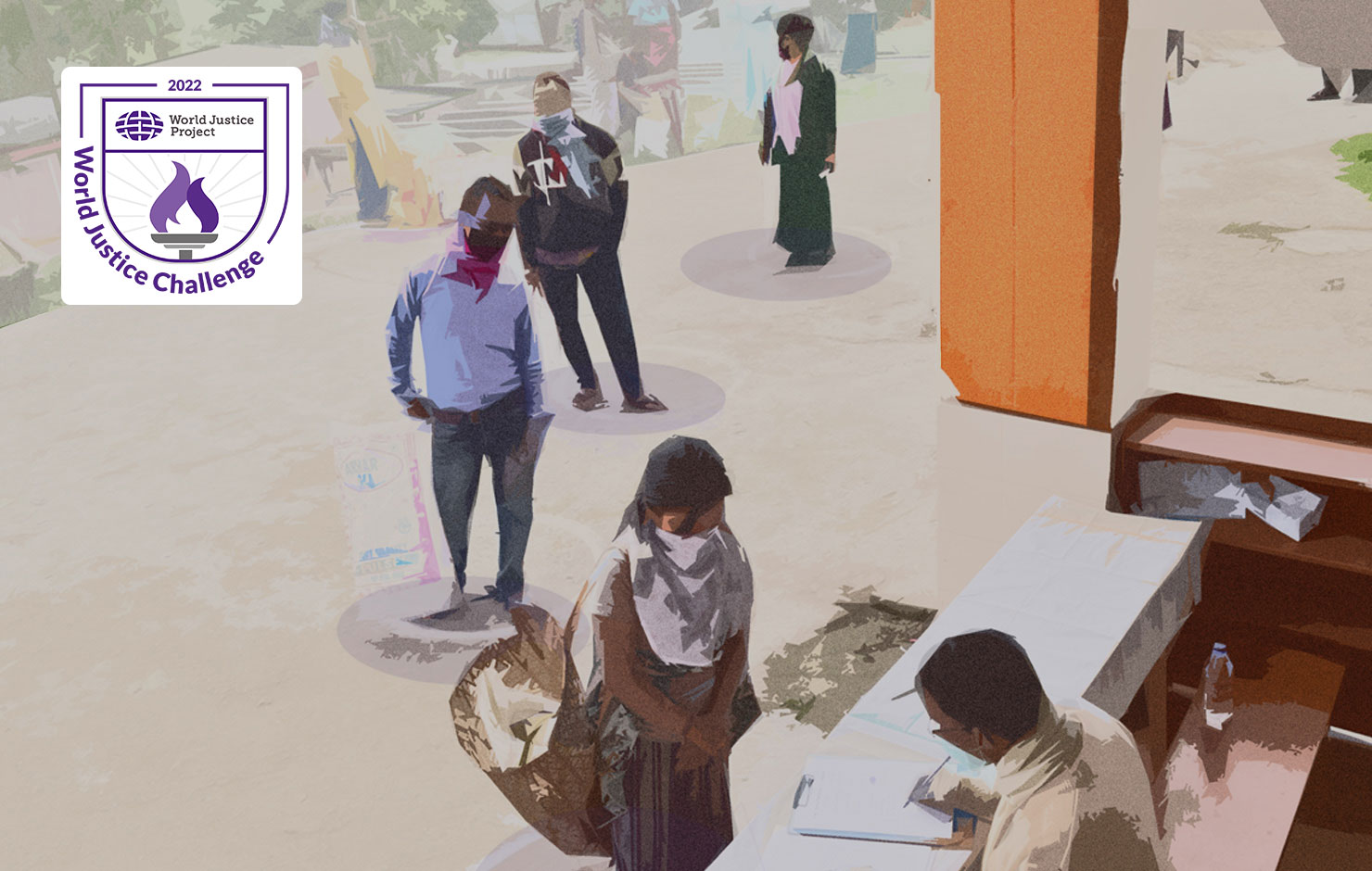
Problem Statement
The World Justice Challenge 2022: Building More Just Communities seeks to identify, recognize, and promote good access to justice practices and high-impact projects and policies that help ensure the path of recovery from COVID-19 is just and that progress toward achieving the SDGs gets back on track.
Around the world, justice needs are ubiquitous and go largely unmet. WJP’s global legal needs survey of more than 100,000 households in 101 countries found that almost half of those surveyed had experienced at least one legal problem in the last two years. These included problems related to housing, land, family, employment, and many other issues at the heart of people’s economic and social well-being. Of those who reported experiencing a legal problem, more than half were unable to meet their justice needs, amounting to 1.4 billion people with unmet civil and administrative justice needs globally.
While unmet justice needs are a critical concern in and of themselves, they are also costly to people and societies. The WJP study found that more than 2 in 5 people reporting a justice problem also experienced a hardship as a result, such as physical or stress-related ill health, loss of income or employment, or the need to relocate. Legal problems also take an economic toll, costing countries between approximately 0.5 and 3 percent of GDP annually. Meanwhile, the COVID-19 pandemic has resulted in sharp increases in poverty and inequality that have reinforced existing access to justice challenges. Around the world, public health measures meant to limit the spread of COVID-19 have curtailed access to justice by consolidating government powers with less accountability, limiting rights and freedoms, and decreasing access to critical legal services.
The scale and impact of access to justice needs underscore the importance of comprehensive, people-centered approaches to justice services. While these negative trends are serious, the global community also has a unique opportunity to reevaluate and improve justice services and governance structures as a way of strengthening access to justice during and beyond the pandemic recovery period.
Guidelines for Applicants
The World Justice Challenge encourages entries that address systemic access to justice challenges, including, but not limited to:
- Protecting those working in the informal economy and facilitating their entry into formal employment and benefits structures
- Ensuring legal identity for all
- Addressing issues of land tenure and housing rights, including substandard housing, informal settlements, homelessness, dispossession, and land grabs that target indigenous lands
- Addressing the justice needs of migrants, refugees, and other forcibly displaced persons
- Addressing the justice needs of crime victims and detainees
- Addressing the strained capacity of justice systems to meet demands, particularly around healthcare, gender-based violence, housing, employment, and debt issues exacerbated by the pandemic
- Strengthening the capacity of formal or informal justice systems to deliver timely access to justice services and legal resolutions
- Facilitating the rebuilding of justice systems disrupted by the pandemic, including through the use of digital, online, and new technological approaches that are equitable and accessible by most people
- Supporting new approaches to ensure the right to a fair and speedy trial, strengthening access to counsel, and improving the openness of trials and other hearings